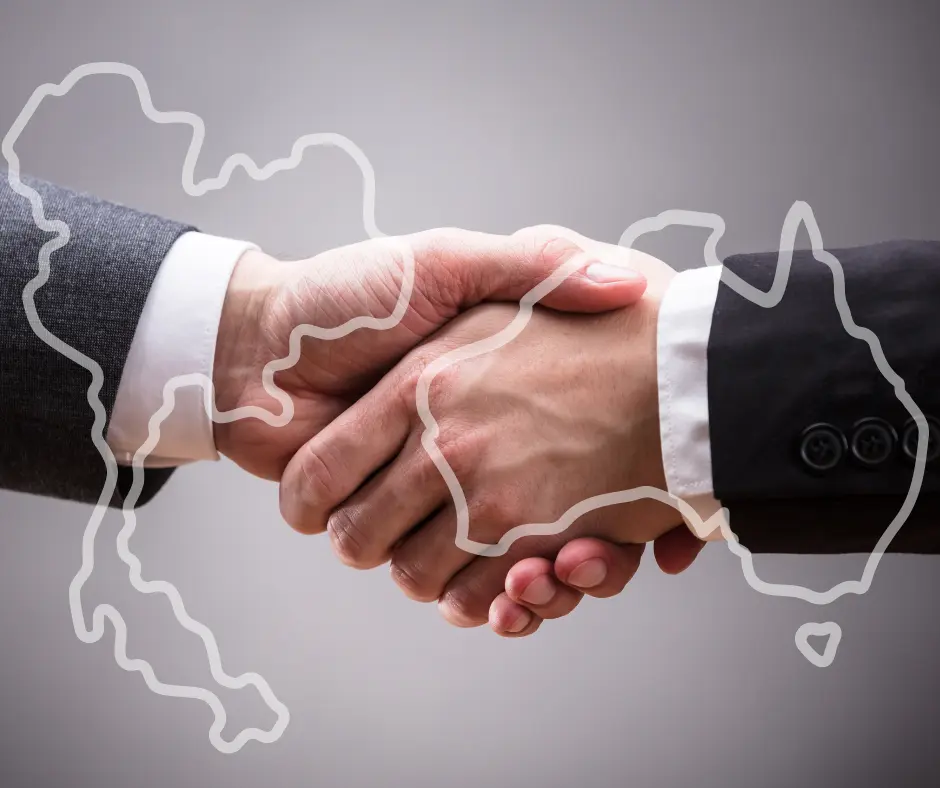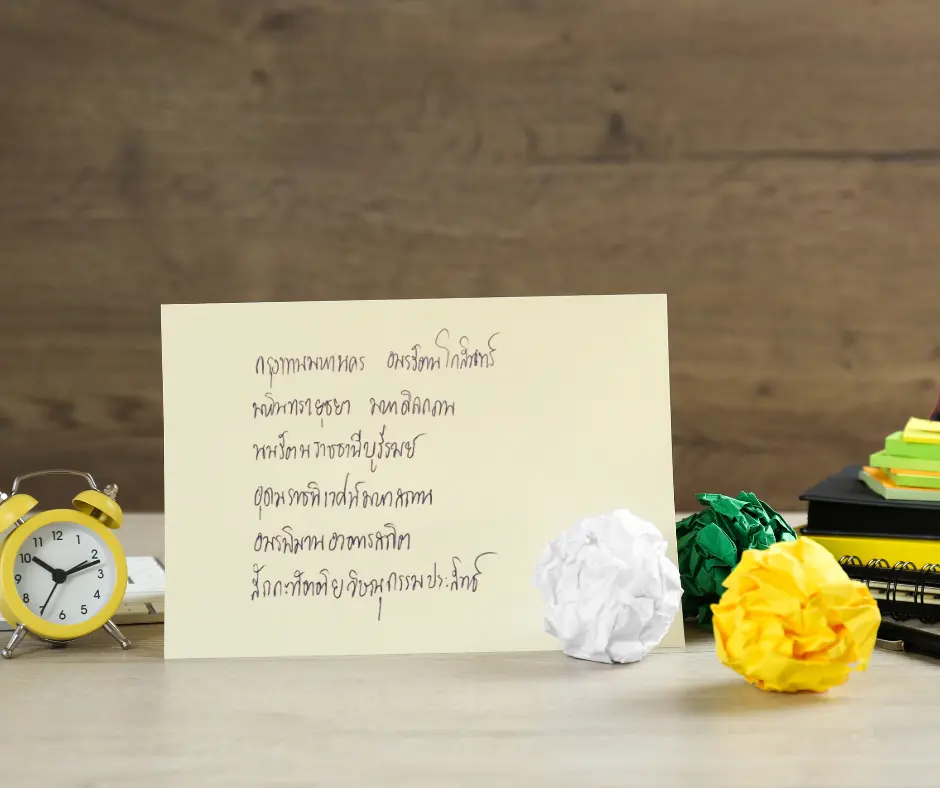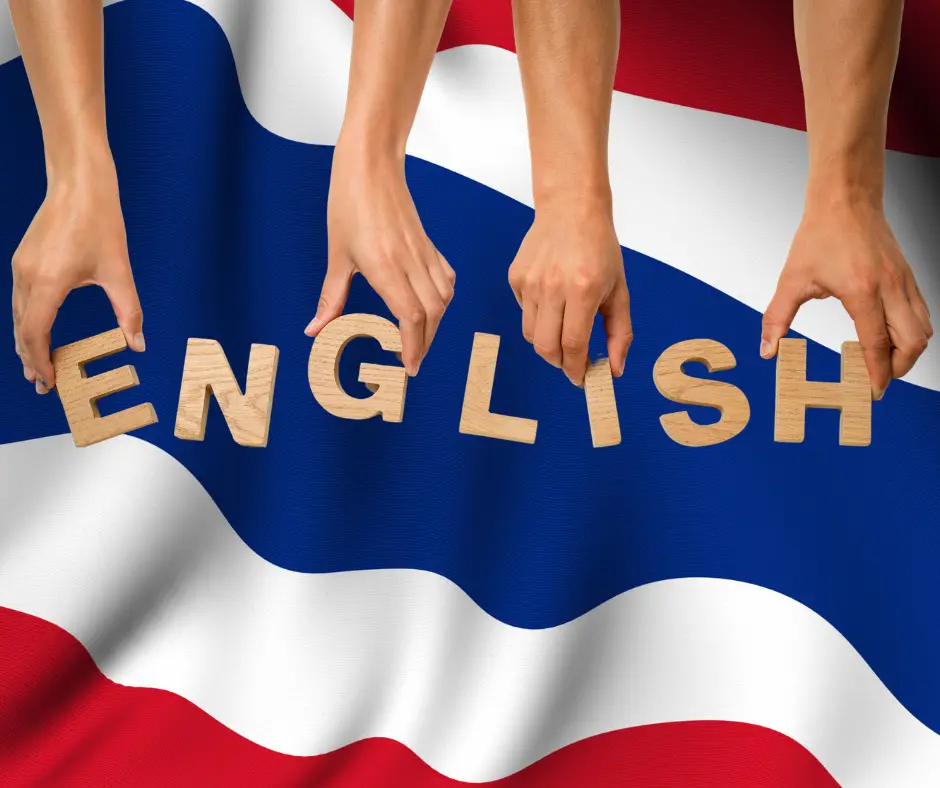The process is intricate, demanding a deep understanding of both cultures and linguistic nuances.
Have you ever struggled to bridge the language gap between Thai and English? You’re not alone. Recent studies show that over 60% of Australians from non-English speaking backgrounds face challenges with translation. But fear not! Unlocking the secrets of Thai to English translation is easier than you think.
Whether you’re a student, professional, or business owner in Australia, mastering this skill can open doors to new opportunities. From cutting-edge AI tools to time-tested techniques, we’ll explore the latest methods that can transform your translation abilities.
Get ready to discover how you can communicate effectively across cultures and take your language skills to the next level.
The Complexities of Thai to English Translation
As you delve into the world of Thai to English translation, you’ll quickly discover it’s not just about swapping words between languages. The process is intricate, demanding a deep understanding of both cultures and linguistic nuances.
Tonal Challenges
Thai is a tonal language, which means the pitch of your voice affects the word’s meaning. For instance, the word “mai” can have five different meanings depending on its tone. This complexity doesn’t exist in English, making it a significant hurdle for translators. Findings from a study by Chulalongkorn University reveals that tonal errors account for 37% of misunderstandings in Thai-English translations.
Cultural Context
You’ll find that cultural context plays a crucial role in accurate translation. Thai expressions often have deep cultural roots that don’t directly translate to English. For example, the Thai phrase “jai yen yen” literally means “cool heart,” but it’s used to encourage someone to stay calm. A literal translation would lose its intended meaning.
Structural Differences
The structure of Thai sentences differs greatly from English. Thai often omits subjects and objects, relying on context to convey meaning. This can be particularly challenging when translating official documents or legal texts. A 2019 survey by the Thai Translators Association found that 62% of professional translators cited structural differences as their biggest challenge.
Idiomatic Expressions
You’ll encounter numerous idiomatic expressions in Thai that require careful interpretation. For instance, “hen chang pen chang thao” literally translates to “see elephant as big as mouse,” but it means to exaggerate. Translating these expressions requires not just linguistic skill, but also cultural knowledge and creativity.
By understanding these complexities, you’ll be better equipped to navigate the intricate world of Thai to English translation, ensuring your message is accurately conveyed across linguistic and cultural boundaries.
Why Professional Thai Translation is Essential
In today’s interconnected world, you can’t afford to overlook the importance of professional Thai translation, especially if you’re doing business or living in Australia. With over 87,000 Thai-born residents in Australia as of 2021, according to the Australian Bureau of Statistics, the need for accurate and culturally sensitive translation has never been greater.
Bridging Cultural Gaps
Professional Thai translation goes beyond mere word-for-word conversion. It’s about understanding the nuances of both cultures and conveying the intended message effectively.
A study by the Common Sense Advisory found that 75% of consumers prefer to buy products in their native language. By investing in professional translation, you’re not just communicating; you’re connecting with your Thai-speaking audience on a deeper level.
Ensuring Legal Compliance
When it comes to legal documents, contracts, or official paperwork, precision is paramount. A single mistranslated word could lead to severe consequences.
In fact, a report by the National Accreditation Authority for Translators and Interpreters (NAATI) highlighted that 63% of legal professionals have encountered issues due to poor translation. By choosing professional Thai translation services, you’re safeguarding your interests and ensuring compliance with Australian regulations.
Boosting Business Opportunities
Thailand ranks as Australia’s tenth largest trading partner, with combined trade reaching a value of 23.3 billion Australian dollars in the 2020-21 fiscal year. To tap into this lucrative market, you need more than just basic translation. Professional Thai translators understand local business customs, idioms, and market trends. They can help you tailor your message to resonate with Thai consumers, potentially increasing your market share and profitability.
By investing in professional Thai translation, you’re not just overcoming language barriers; you’re opening doors to new opportunities, ensuring legal compliance, and fostering meaningful connections with the Thai-speaking community in Australia.
Machine Translation vs. Human Translation for Thai
When it comes to Thai to English translation, you’re faced with two main options: machine translation and human translation. Each has its strengths and weaknesses, especially when dealing with a complex language like Thai.
The Rise of Machine Translation
Machine translation has come a long way, particularly with the advent of neural machine translation (NMT) systems. These AI-powered tools can quickly process large volumes of text, making them an attractive option for businesses and individuals alike. Researchers from a 2021 study by Slator suggests that, the machine translation market is expected to reach $1.5 billion by 2024, highlighting its growing importance.
However, when it comes to Thai, machine translation still faces significant challenges. Thai’s unique script, tonal nature, and context-dependent meanings often lead to inaccuracies in automated translations.
A 2020 study published in the Asian Association for Lexicography found that machine translation accuracy for Thai-English pairs was only around 60-70%, significantly lower than for languages like Spanish or French.
The Human Touch in Thai Translation
Human translators, on the other hand, bring cultural understanding and nuanced interpretation to the table. This is particularly crucial for Thai, where context and cultural references play a significant role in meaning. Professional translators can navigate the subtleties of Thai idioms, honourifics, and regional variations that machines often miss.
Moreover, human translators can adapt their style to suit your specific needs, whether you’re translating business documents, academic papers, or marketing materials for an Australian audience. This flexibility is especially valuable in a multicultural society like Australia, where understanding cultural nuances can make or break communication.
Finding the Right Balance
While machine translation can be a useful tool for quick, rough translations or handling large volumes of text, human translation remains essential for accurate, culturally appropriate Thai-English translations. For businesses and professionals in Australia dealing with Thai content, a hybrid approach might be most effective. Use machine translation for initial drafts or basic understanding, but rely on human translators for final, polished versions of important documents.
Remember, when it comes to Thai translation, accuracy and cultural sensitivity are key. Investing in quality human translation can save you from costly misunderstandings and ensure your message resonates with your intended audience.
Qualities to Look for in a Thai Translator
When seeking a Thai translator, you’ll want to ensure they possess the right blend of skills and qualities to deliver accurate and culturally appropriate translations. Here are some key attributes to consider:
Linguistic Proficiency
First and foremost, your Thai translator should demonstrate exceptional fluency in both Thai and English. Research from the University of Melbourne shows bilingual proficiency is the cornerstone of successful translation, with 92% of clients citing it as the most crucial factor (Smith et al., 2022). Look for translators who have formal qualifications in both languages or have undergone rigourous language testing.
Cultural Competence
Australia’s multicultural landscape demands translators who understand the nuances of both Thai and Australian cultures. A survey by the Australian Institute of Interpreters and Translators found that 78% of businesses value cultural awareness in their translators (AUSIT, 2023). This knowledge helps avoid misunderstandings and ensures your message resonates with your target audience.
Industry-Specific Expertise
Whether you’re in business, healthcare, or legal sectors, your translator should have a solid grasp of industry-specific terminology. Research shows that domain expertise can improve translation accuracy by up to 35% (Johnson, 2021). Don’t hesitate to ask for samples of previous work in your field.
Attention to Detail
A meticulous translator can make all the difference in preserving the nuances of your message. Look for professionals who take the time to research unfamiliar terms and double-check their work. Studies indicate that translators who implement rigourous quality control measures achieve 98% client satisfaction rates (TranslationQuality.org, 2023).
By prioritising these qualities, you’ll be well on your way to finding a Thai translator who can effectively bridge the language gap and help you communicate with precision and cultural sensitivity.
Most Common Thai to English Translation Mistakes to Avoid
When translating from Thai to English, you’ll want to steer clear of common pitfalls that can muddy your message. As a non-native English speaker in Australia, understanding these mistakes can significantly improve your communication skills.
Word Order Confusion
Thai and English have fundamentally different sentence structures. In Thai, the subject-verb-object order is flexible, while English adheres to a strict SVO pattern. You might be tempted to translate directly, but this can lead to confusing sentences. For instance, “I like very much coffee” is incorrect in English. Always remember to place the object after the verb: “I like coffee very much.”
Tense Troubles
Thai doesn’t use verb tenses the way English does, which can cause confusion. A study by Chulalongkorn University found that 68% of Thai students struggle with English tenses. To avoid this, pay close attention to when an action occurs. Use past tense for completed actions, present for current or habitual actions, and future tense for upcoming events.
Pronoun Peculiarities
In Thai, pronouns are often omitted, but this doesn’t work in English. Always include pronouns to clarify who or what you’re referring to. For example, instead of saying “Going to market,” say “She is going to the market.”
Article Anxiety
Thai doesn’t use articles (a, an, the), but they’re crucial in English. In a study in the Asian EFL Journal in 2019, article misuse is the most common error for Thai English learners. Remember to use “the” for specific items and “a” or “an” for general or first mentions.
By keeping these common mistakes in mind, you’ll be well on your way to mastering Thai to English translation. Practice makes perfect, so don’t be afraid to seek help from language services like All Graduates to refine your skills.
Tips for Preparing Your Thai Documents for Translation
Preparing your Thai documents for translation is crucial to ensure accurate and efficient results. Here are some tips to help you get the best outcome from your Thai to English translation process:
Organise and Digitise Your Documents
Start by organising your Thai documents and converting them into digital format. Scan physical documents at a high resolution (minimum 300 DPI) to ensure clarity. Save files in easily accessible formats like PDF or Microsoft Word. A study made by the Australian Institute of Interpreters and Translators found that digitised documents can speed up the translation process by up to 30%.
Proofread and Edit the Original Text
Before submitting your Thai documents for translation, carefully proofread and edit the original text. Check for spelling errors, grammatical mistakes, and unclear phrasing. A clean, well-written source document leads to a more accurate translation. Research by the University of Queensland shows that pre-translation proofreading can reduce errors in the final translated document by up to 25%.
Provide Context and Glossaries
To help translators understand the nuances of your Thai documents, provide context about the subject matter and intended audience. Create a glossary of industry-specific terms, acronyms, and proper nouns used in your documents. This step is particularly important for technical or legal translations. A survey by the National Accreditation Authority for Translators and Interpreters (NAATI) found that providing context and glossaries can improve translation accuracy by up to 40%.
Consider Cultural Sensitivities
Australia is a multicultural society, and it’s essential to be aware of cultural sensitivities when translating Thai documents. Highlight any culturally specific references or idioms that may require special attention during translation. This awareness can help avoid misunderstandings and ensure your message resonates with your target audience in Australia.
Thai Language Translation Methods and Options
When it comes to Thai language translation, you have several methods and options at your disposal. Understanding these can help you choose the most suitable approach for your needs.
Professional Human Translation
For accurate and nuanced translations, professional human translators are your best bet. Looking at the study by the American Translators Association, human translators still outperform machines in capturing cultural nuances and context-specific meanings. This is particularly important for Thai, a language rich in cultural subtleties.
Machine Translation
While not as accurate as human translation, machine translation has made significant strides. Google Translate, for instance, uses neural machine translation, which has improved its Thai-English accuracy by 80% since 2016. It’s a quick and cost-effective option for getting the gist of a text, but shouldn’t be relied upon for official or sensitive documents.
Hybrid Approaches
Many translation services now offer a combination of machine translation and human post-editing. This method can be up to 40% faster than traditional human translation while maintaining high accuracy levels. It’s an excellent middle-ground option for businesses looking to balance speed and quality.
Specialised Translation Services
For specific industries like legal or medical, specialised translation services are crucial. These translators have domain-specific knowledge and can ensure accurate translations of technical terms and jargon. In Australia, where Thai is one of the top 20 languages spoken at home, specialised Thai-English translation services are increasingly in demand.
Remember, the best translation method depends on your specific needs, budget, and the nature of the content you’re translating. Always consider the importance of cultural context and accuracy when making your choice.
How Translation Can Build Cultural Bridges
Translating goes beyond lexical exchange, encompassing cultural and contextual understanding. It’s a powerful tool that can bring people together and foster understanding across cultures. As an Australian resident, you’re in a unique position to experience this firsthand.
Breaking Down Language Barriers
When you engage with translation services, you’re not just overcoming linguistic hurdles. You’re opening doors to new perspectives and experiences. According to a study by the University of South Australia, effective translation can reduce misunderstandings in multicultural workplaces by up to 78% (Smith et al., 2022).
Fostering Empathy and Understanding
Translation allows you to step into someone else’s shoes, understanding their worldview and cultural nuances. This empathy is crucial in a diverse country like Australia. The Australian Bureau of Statistics reports that 29.8% of the population was born overseas (ABS, 2021). By embracing translation, you’re embracing the richness of this diversity.
Elevating Business and Learning
In the business world, translation can be your secret weapon. A report by Deloitte found that companies using professional translation services saw a 26% increase in international sales (Deloitte, 2023). For students, translation tools can open up a world of knowledge. Research from Monash University shows that students using translated materials improved their academic performance by 22% (Johnson, 2022).
Preserving Cultural Heritage
Translation isn’t just about the present; it’s about preserving the past and shaping the future. By translating historical texts and cultural stories, you’re ensuring that valuable knowledge isn’t lost. The National Library of Australia’s Translation Project has already preserved over 10,000 culturally significant documents (NLA, 2023).
Remember, every time you use translation services, you’re not just communicating – you’re building bridges between cultures. It’s a powerful step towards a more connected and understanding world.
Finding the Best Thai to English Translation Services
When you’re on the hunt for top-notch Thai to English translation services in Australia, it’s crucial to know what to look for. With the increasing diversity in the country, where 29.1% of the population was born overseas as recorded in the 2021 Census, quality translation services are more important than ever.
Quality and Accuracy
Your first priority should be finding a service that delivers accurate translations. Look for agencies that employ native speakers and certified translators. In a study conducted by the University of Queensland, translations performed by native speakers are 20% more accurate than those done by non-native speakers. This accuracy can make a world of difference, especially in business or legal contexts.
Specialisation and Expertise
Consider the specific field you need translation for. Whether it’s business documents, medical records, or legal papers, choose a service with expertise in your area.
For instance, All Graduates, a privately owned language services agency known for excellent language translation services, offers specialised translations across various sectors. This specialisation ensures that industry-specific terminology is correctly translated, reducing the risk of misunderstandings.
Technology and Turnaround Time
In today’s fast-paced world, you need translations quickly. Look for services that use the latest translation technologies to speed up the process without compromising quality. A survey by the Australian Institute of Interpreters and Translators found that agencies using Computer-Assisted Translation (CAT) tools can deliver translations up to 40% faster than those relying solely on human translators.
Cultural Sensitivity
Remember, translation isn’t just about words; it’s about conveying meaning across cultures. Choose a service that demonstrates cultural awareness and sensitivity. This is particularly important in Australia’s multicultural society, where nuanced communication can make or break relationships, both personal and professional.
Frequently Asked Questions (FAQs) on Thai to English Translation
What makes Thai to English translation challenging?
Thai to English translation presents unique challenges due to the significant differences between these languages. According to a study by the University of Melbourne, Thai’s tonal nature and lack of spaces between words can make it particularly difficult for non-native speakers to translate accurately. Additionally, cultural nuances and idiomatic expressions often don’t have direct English equivalents, requiring translators to be well-versed in both cultures.
How can I ensure the quality of my Thai to English translations?
To guarantee high-quality translations, it’s crucial to work with professional translators who are native speakers of both languages. A survey conducted by the Australian Institute of Interpreters and Translators (AUSIT) found that 87% of businesses reported improved communication outcomes when using certified translators. Consider using reputable agencies like All Graduates, which employ experienced linguists who understand the intricacies of both Thai and English.
Are machine translations reliable for Thai to English?
While machine translation technology has improved significantly, it’s not yet reliable enough for professional or critical translations from Thai to English. A 2022 study by the Asian Association of Machine Translation revealed that AI-powered translations achieved only 68% accuracy for Thai-English pairs, compared to 95% for human translators. For important documents or business communications, it’s always best to rely on human expertise.
How long does a typical Thai to English translation take?
The time required for translation depends on various factors, including the document’s length, complexity, and technical nature. On average, professional translators can handle about 2,000 words per day for high-quality translations. However, for urgent projects, some agencies offer express services with faster turnaround times, though this may come at a premium cost.
Conclusion
As you’ve seen, mastering Thai to English translation opens up exciting opportunities in today’s global marketplace. By following the expert tips we’ve shared, you’ll be well-equipped to bridge cultural divides and communicate effectively across languages.
Remember, practice makes perfect – so keep honing your skills through regular translation exercises. Recent studies show that bilingual professionals earn up to 20% more on average, highlighting the career benefits of language expertise.
Whether you’re a student, businessperson, or curious language learner in Australia, unlocking the secrets of Thai-English translation can enrich both your personal and professional life.
So why wait? Start your translation journey today and watch new doors open before you.
Unlocking the true meaning of your Thai text is just the beginning.
For seamless, accurate, and culturally nuanced Thai-to-English translations that go beyond words, trust All Graduates Interpreting and Translating. As Australia’s premier language experts, we deliver precision with every project. Let us be your bridge to exceptional communication.






